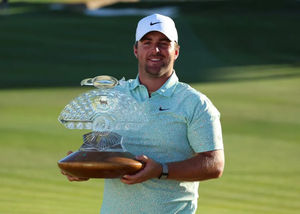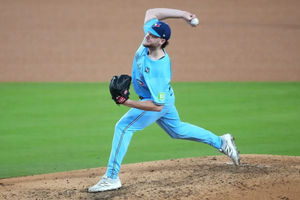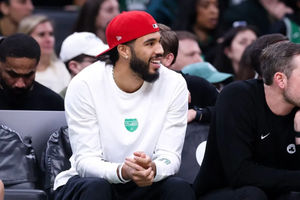Why Prosecutors Didn't Bring Charges Against Aroldis Chapman

Prosecutors have declined to bring charges against now-Yankees pitcher Aroldis Chapman for his actions the night he was accused of choking his girlfriend and firing eight gunshots inside his garage, the Broward State Attorney’s Office announced today. The office also released a closeout memo, written by the assistant state attorney in charge of the domestic violence unit, outlining the decision to not prosecute—which came down to a mix of people changing their stories, a statement that might not be usable in court, and Florida’s gun laws.
First, here are what the memo describes as the “undisputed facts” of the night:


Those undisputed facts don’t include what happened between Chapman and Cristina Barnea. Prosecutor Stefanie Newman writes that they spoke with Barnea, who told 911, “He was hitting me in front of everyone and he’s going crazy.” When police responded to the home, Barnea told them Chapman got very upset with her and pushed her against a wall near the movie theater before her brother separated them. She added that Chapman “choked” her by putting his hands around her neck but did not prevent her from breathing.
On Dec. 22, she provided a “sworn waiver of prosecution” to the state attorney’s office, saying “...she entered his personal space. Aroldis used his fingers to move her away from him, out of his personal space. She lost her balance and fell.” This lined up with what Chapman told police, which was that he poked her and she fell on the floor.
On Jan. 12, Newman spoke with Barnea again. Barnea reiterated that Chapman was trying to get her out of his personal space and that she fell because “there was a chair behind her and it made her fall on the floor.” She was mad and screaming, which drew her brother, who saw her on the floor and tackled Chapman.
Barnea’s brother, who tackled Chapman, said he did tackle Chapman but he “did not see how his sister ended up on the floor, nor did she tell him anything that had happened.” Chapman’s driver, Yensy Fernandez, said the police report was inaccurate about what he saw. Fernandez said he did not see the couple fighting, all he saw was them going into the theater, and later Dany Barnea running toward toward the theater. He heard a loud noise but “it did not sound like a gunshot to him.” He said he didn’t talk to anyone about what happened that night because “nothing happened.”
But Chapman did admit to firing his gun eight times, and police found evidence of that. Newman walks through the possible charges based on Florida law, but finds that he didn’t violate any state laws because nobody saw him with the gun, it was fired inside a private home, and there’s no evidence that Chapman was specifically aiming or shooting at anyone. His statement to police also might not be admissible, she writes, “because these statements were made to police while they were conducting a criminal investigation prior to any rights being read.”
Unrelated directly to the charges, it’s also worth pointing out what the memo says about how the case came to prosecutors. It was not, Newman writes, because police presented it to them, as was indicated in the Davie police report. Several days after the incident, a detective called prosecutor Marcie Zaccor, saying the police “had already concluded that there was no domestic battery” before providing some facts about the firing of the gun.
Prosecutors only “became aware of the incident after receiving several inquiries from various media sources in early December 2015,” according to the memo. It was presented to them for review on Dec. 9, two days after the story broke.
The full memo is below.
The NBA’s Tanking Problem Is Getting Worse — Not Better
NBA Picks Tonight: Three Best Bets Before the All-Star Break
The Biggest Question Facing Every 2026 MLB Contender
Best NBA Betting Picks for Wednesday Feb. 11th Slate
Atlanta Falcons Bet Big on James Pearce Jr. — and Lost
- Sunday Feb 8th NBA Picks: Three Best Bets Today
- Super Bowl Betting Preview: Seahawks vs. Patriots Breakdown & Pick
- The Most Fun Super Bowl Prop Bets You Can Make This Year
- Super Bowl 60 Prop Bets: 10 Best Bets for Patriots vs. Seahawks
- UFC Fight Night at the Apex Best Betting Picks and Predictions
- NBA Betting Picks for Friday Feb. 6: Post-Deadline Predictions
- Best College Basketball Betting Picks for Thursday, February 5th












